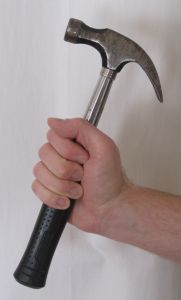

MedFriendly®


Ideomotor Apraxia
Ideomotor apraxia is a disturbance of voluntary movement
because of a disconnection between the idea of a movement and
its execution. People with ideomotor apraxia can still perform most
automatic movements. However, they cannot perform such
movements upon request. They also have difficulty copying
movements, using tools, or making/imitating gestures (particularly
ones that are more abstract). Ideomotor apraxia is most often due
to damage to the premotor cortex. The premotor cortex is an area
in the front part of the brain that plays an important role in motor
planning (e.g., selecting the movements to be executed).
Damage to the corpus callosum and left inferior (lower) parietal
lobe and corpus callosum have been shown to cause ideomotor
apraxia. The corpus callosum is a group of nerve fibers that
connect both sides of the brain and allow them to communicate.
The parietal lobe is the top middle section of the brain.
A person with ideomotor
apraxia may have difficulty
using a hammer on request.
FEATURED BOOK: A Parent's Guide to Childhood Apraxia of Speech
Damage to this region was traditionally thought to cause apraxia because it was believed
to contain mental representations of intended movements that precede and direct the
execution of such movements. More recently, however, evidence has emerged that the
reason may actually be because the left parietal lobe helps process the spatial
relationships between multiple objects, parts of objects, and the body so these features
can interact.
"Where Medical Information is Easy to Understand"™
Ideomotor apraxia is most often contrasted and compared to
ideational apraxia. Ideational apraxia is a disturbance of voluntary
movement in which a person misuses objects because he/she has
difficulty identifying the concept (idea) or purpose behind the
objects.
Ideomotor apraxia is also known as limb-kinetic apraxia, ideokinetic
apraxia, and transcortical apraxia. Ideomotor apraxia comes from
the Greek word "idea" meaning "form," the Latin word "motare"
meaning "to move about," the Greek word "a" meaning "to do
without," and the Greek word "pratto" meaning "to do."















